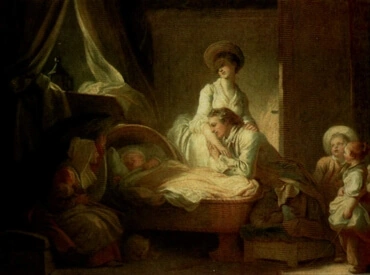1
La parola che fu rivolta a Geremia da parte dell’Eterno, quando il re Sedechia gli mandò Pashur, figliuolo di Malchia, e Sefonia, figliuolo di Maaseia, il sacerdote, per dirgli:
2
"Deh, consulta per noi l’Eterno; poiché Nebucadnetsar, re di Babilonia, ci fa la guerra; forse l’Eterno farà a pro nostro qualcuna delle sue maraviglie, in guisa che quegli si ritragga da noi".
3
Allora Geremia disse loro: Direte così a Sedechia:
4
Così parla l’Eterno, l’Iddio d’Israele: Ecco, io sto per far rientrare nella città le armi di guerra che sono nelle vostre mani e con le quali voi combattete, fuori delle mura, contro il re di Babilonia, e contro i Caldei che vi assediano, e le raccoglierò in mezzo a questa città.
5
E io stesso combatterò contro di voi con mano distesa e con braccio potente, con ira, con furore, con grande indignazione.
6
E colpirò gli abitanti di questa città, uomini e bestie; e morranno d’un’orrenda peste.
7
Poi, dice l’Eterno, io darò Sedechia, re di Giuda, e i suoi servi, il popolo, e coloro che in questa città saranno scampati dalla peste, dalla spada e dalla fame, in mano di Nebucadnetsar re di Babilonia, in mano dei loro nemici, in mano di quelli che cercano la loro vita; e Nebucadnetsar li passerà a fil di spada; non li risparmierà, e non ne avrà né pietà né compassione.
8
E a questo popolo dirai: Così parla l’Eterno: Ecco, io pongo dinanzi a voi la via della vita e la via della morte.
9
Colui che rimarrà in questa città morrà per la spada, per la fame o per la peste; ma chi ne uscirà per arrendersi ai Caldei che vi assediano vivrà, e avrà la vita per suo bottino.
10
Poiché io volgo la mia faccia contro questa città per farle del male e non del bene, dice l’Eterno; essa sarà data in mano del re di Babilonia, ed egli la darà alle fiamme.
11
E alla casa dei re di Giuda di’: Ascoltate la parola dell’Eterno:
12
O casa di Davide, così dice l’Eterno: Amministrate la giustizia fin dal mattino, e liberate dalla mano dell’oppressore, colui a cui è tolto il suo, affinché l’ira mia non divampi a guisa di fuoco, e arda sì che nessuno la possa spengere, per la malvagità delle vostre azioni.
13
Eccomi contro te, o abitatrice della valle, roccia della pianura, dice l’Eterno. Voi che dite: "Chi scenderà contro di noi? Chi entrerà nelle nostre dimore?"
14
io vi punirò secondo il frutto delle vostre azioni, dice l’Eterno; e appiccherò il fuoco a questa selva di Gerusalemme, ed esso divorerà tutto quello che la circonda.







